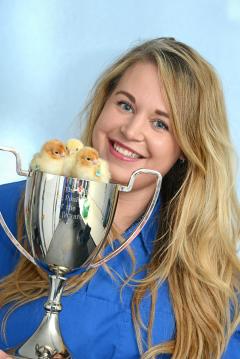WORK
PLACEMENT/INTERNSHIP
Eilidh
Stewart, who is hoping to begin an undergraduate degree in Anthropology this
year at Aberdeen University, spent the end of July shadowing JMICAWE
contributor Dr Jill MacKay. Based in the Veterinary Medical Education Division
of R(D)SVS, Eilidh assisted Jill with research into education and animal
welfare. Eilidh wrote a guest blog for JMICAWE about her experiences in
veterinary education research:
Over the past week I have been interning in the digital
education unit within the Royal (Dick) School of Veterinary Studies shadowing
Dr MacKay. This has been an invaluable experience learning about the role of
education research and work that goes on here.
The research undertaken by the many scientists, MSc and PhD students at
R(D)SVS and Roslin Institute has been fascinating to hear about, and even more
fun to assist with. I come from an arts/humanities background so the idea of working with
scientists was initially daunting. However, I soon realised that my social
science perspective was beneficial as I could approach theories, discussion and
research from a different angle, and this helped with the social research
element of some the work carried out within the Vet School. On the other hand,
this week has re-ignited my interest in science. Working so closely with
researchers from both the Veterinary Medical Education Division and JMICAWE
improved has vastly my understanding of issues and research within animal
welfare and biology - their enthusiasm for their subject has been infectious.
One of my task this week was watching recorded lectures of
the Animal Biology course taught by Julie Dickson of R(D)SVS. We were using her
recorded lectures to test out methods of research to analyse teaching
performance, student engagement etc. within lectures. This was an informative
task as it not only helped with Dr MacKay’s research into veterinary medical
education but it taught me a lot about the anatomy of animals. I found the
lectures fascinating.
I loved getting to hear about the various research projects
carried out across the university – how we could integrate “resilience” and
“empathy” training into the vet curriculum to improve mental health in
students; looking at social media (e.g. yik yak) to gain feedback on university
teaching and assessment and how technology such as 3D models, Virtual Reality
or Recorded Lectures could be used as educational tools.
My favourite part of
this week was when we took a class for the University of Edinburgh’s “
Science
Insights”. This was a workshop on animal behaviour to sixteen-year olds
that were interested in studying Veterinary Medicine after their secondary
schooling was completed. It was fascinating to hear more about animal
personalities and behaviour. Despite my help with class supervision I couldn’t
help but feel like a student! The students were lovely and worked hard. We then
took them out to see the horses and sheep at the vet school, and it was great
to see how much enthusiasm they had not just for veterinary medicine but the
research conducted on site as well. It great to be a part (albeit small) of a
project that encouraged students into science, and to share my excitement for research
with them.
My placement over the past week has been incredibly
beneficial not just professionally but personally. I have gained a great work
experience opportunity for my CV, relevant contacts for networking and a basic
of understanding of animal anatomy and behaviour. It has also encouraged me to
think about potentially pursuing s a future career in research/academia. I
would encourage anybody else interested in research, veterinary medicine or
science as a career to explore education research.
Dr Jill MacKay discussing how we can measure equine
behaviour during a typical Scottish summer day!



































